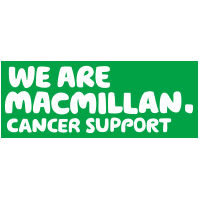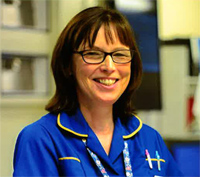Useful information
Parking
There are several car parks available at the Royal Bournemouth Hospital:
- at the front of the hospital by the main entrance
- at the side near the Diabetes and Endocrine Centre
- at the back by the Eye Unit and Derwent Suite
There are disabled parking spaces in all our pay and display car parks.
For investigations and tests, the closest car park will usually be the front car park. However, for clinic appointments the car park at the rear of the hospital might be closer. Please check your appointment letter if you find walking difficult, so that you can choose the car park which is best for your appointment. Please also check that you will be allowed to drive after your test, as some tests involve sedation which means that you will not be allowed to drive afterwards.
Please see the 'Parking' pages for more information.
Public transport
Many bus routes come into the Royal Bournemouth Hospital, and at the bus stop there is a digital sign informing you of accurate waiting times for the buses on each route. Please see our 'Travelling to Hospital' pages for more information.
Useful Links
Learning difficulties and dementia
If you have learning difficulties, a 'hospital passport' will help those who are looking after you to know what extra help you may need, and what is important to you. You can download the template, which you then fill in with your own details, from here.
If you have dementia, a similar tool can be downloaded from here.
It is also available in a Welsh bilingual version.
The Bournemouth after cancer survivorship programme
A free, personalised programme of health, fitness and wellbeing experiences aimed at improving your potential to live well and be active.
https://www.bhliveactive.org.uk/health/
CUPID (Colostomy, Urostomy & Pouch Ileostomy of Dorset)
CUPID provides informal get-togethers for patients, their partners and friends, for support and to share information.
Bournemouth sessions are held at:
Iford Baptist Church, Old Bridge Road, Iford, Bournemouth, BH6 5RG
Co-ordinator: Beryl Andrews 01202 483303
Poole sessions are held at:
The Lounge Room, Longfleet Baptist Church, 138 Wimborne Road, Poole, BH15 2EX
Co-ordinator: Jenny Pipe 01202 740440
The Colostomy Association
The Colostomy Association is a dedicated charity that represents the interests of people living with a colostomy. It provides advisory literature, a magazine and website, as well as a 24-hour helpline for stoma care queries.
Helpline: 0800 328 4257
Website: www.colostomyuk.org
Living well active

Improve your potential to live active and well with and beyond cancer.
Tel: 01202 426 588
https://www.livingwellactive.org/
Bournemouth cancer support centre

Your local cancer support centre offering free, non-clinical support to anyone affected by a diagnosis or cancer. We offer befriending, counselling, aromatherapy, reflexology and information services.
Tel: 01202 315 824
http://www.wessexcancer.org.uk
Look good feel better

Look good feel better provides a two hour free of charge workshop to help women and teenagers dealing with the visible side-effects of cancer treatment, to help regain a sense of control and normality. Held at the Royal Bournemouth Hospital.
Tel: 01202 705198
https://www.lookgoodfeelbetter.co.uk/support-advice/group-session/
Also - LookGoodFeelBetter support for men provides advice about skin and hair care as well as looking after your body and mind.
http://www.lookgoodfeelbetterformen.org/
My health, my way
A free service provided by the NHS in Dorset to help you to manage your life with a health condition and to promote your wellbeing.
http://www.myhealthdorset.org.uk
Tel: 0303 303 0153
BHLive
A personalised programme of health, fitness and wellbeing experiences aimed at improving your potential to live well and be active.
https://bhliveactive.org.uk/health/
Macmillan cancer support

Provides information and support, an online community, and much more, for anyone affected by cancer.
Cancer Research UK

For information on cancer, research into cancer causes and treatments, and much more.
Treatment
Treatment for Colorectal cancers may include endoscopic intervention (where the problem is treated during an endoscopy), surgery, chemotherapy, radiotherapy, any combination of the above, or indeed, you may choose to have no treatment.
Your treatment options will be considered at the multi-disciplinary team (MDT) meeting, where consultants from all the associated fields of medicine will combine their knowledge to produce the best possible treatment plan for you. When appropriate, we work with the teams in Poole, Dorchester, Salisbury, Southampton, Basingstoke and Manchester hospitals to co-ordinate your treatment, which may be changed according to your own wishes or depending upon your response to any treatment so far. At every step, you can discuss your treatment with your cancer nurse specialist, your doctors or anyone else involved in your care - and if you have questions, you must ask.
Ongoing support
Financial
We are aware that a diagnosis of cancer can affect every area of your life. Through the Holistic Needs Assessments which you will complete with the Clinical Nurse Specialist team, there is opportunity to offer you information about the various means of support available if you find that your finances are affected. This may be through outside agencies, or accessed via the hospital's designated social worker Brian Morris, who works from an office at the Royal Bournemouth Hospital.
Ongoing Health and Wellbeing

Amanda Brampton
Specialist Nurse, Cancer Care
Holds workshops to help people deal with the ongoing effects of cancer treatment, or to help them to simply embrace life fully again.
Deborah-Lynn Wilkinson
The Holistic Needs Assessments which are completed at various stages in your treatment,help patients to identify any ongoing care needs, to support them in life during and after cancer treatment. You may meet Deborah-Lynn Wilkinson (Macmillan Assistant Practitioner) as part of this programme.
There are also a number of associations and groups who offer education and support right through from diagnosis; some useful links are included in the links to the left.
Palliative care
As we all know, unfortunately we cannot guarantee good outcomes for all of our cancer patients. For those who do not respond well to treatment, or for those whose cancer is very advanced, the best outcome may be for good management of any symptoms, including pain. We have a specialised palliative care team who work to ensure your comfort and to support you in your choices, so that you can experience your life as you choose to - whether at home or in an appropriate palliative care setting.
Investigations
Investigations undertaken due to symptoms that may be attributable to a diagnosis of colorectal cancer may include:
CT Scan (Computerised Tomography)
This uses specialised X-ray equipment in the form of a doughnut-shaped scanner, to take multiple images of your body to build up a 3-D picture of your organs and surrounding structures. They can also identify the way in which organs are working through things such as blood flow, oxygen and glucose use, etc. The machine then takes many images and records many measurements, which together are used to create a comprehensive view of the area being investigated. The radiation you are exposed to is a very low amount, and the radiation risk is very low, compared to the potential benefits. However, if you may be pregnant or are breastfeeding, you must inform us before the test is performed. Please also tell us if you are diabetic.
MRI Scan (Magnetic Resonance Imaging)
This is the test where you lie on a flat bed which moves in and out of a large tunnel. It uses a magnetic field and pulses of radio-wave energy, to create a detailed 3D image of internal body structures. It provides different information from a CT scan.
Ultrasound (US) scan
A small device called an ultrasound probe is used, which gives off high-frequency sound waves which can't be heard by the human ear. The probe is passed over the part of the body of interest, and the sound waves reflect back from the different structures inside which are then turned into an image which is seen on a screen.
Endoscopy - Colonoscopy or Flexible Sigmoidoscopy
Endoscopy is a general term for when the inside of a part of the gastrointestinal system is viewed by use of a tiny digital camera on the end of a long, flexible tube ("scope"). With a colonoscopy, the bowel is emptied out beforehand by a solution we will ask you to drink. In the test, a scope is passed into your body via the anus (bottom) and we follow the colon (large bowel) around to see its inner surface, to see if there are any growths, damaged areas or other problems. During the test we have to inflate your bowel with air to open out the folds and make the pictures clearer. If we leave any air inside after the test, it will pass in the natural way. If you have sedation for this procedure you will need to have an adult with you for the following 12hrs, and you will not be able to drive or drink alcohol for a full 24hrs afterwards, which allows time for the residual effects of the sedation to leave your body.
A flexible sigmoidoscopy is performed in the same way with the same instruments, but it is a shorter test where we only look at the lower part of the large bowel, and because of this you will not need to drink the solution to clear the bowel, but will be asked to give yourself an enema which we will send you with your appointment letter. The enema should clear the lowest part of the bowel enough so that we can get the views we need. Most people do not require sedation for a flexible sigmoidoscopy.
A rigid sigmoidoscopy is sometimes performed in clinic, so that we can see any problems just in your rectum and very lowest part of your colon, e.g. haemorrhoids ('piles'). This is a short tube which holds the anus (bottom) open so that the clinician can view the area directly.
Endoscopic Ultrasound (EUS)
This is where an ultrasound probe is passed through the inside of an endoscope during endoscopy to create ultrasound pictures of the surrounding structures in the body. Because the ultrasound probe is inside the body, this creates clearer pictures in comparison to normal ultrasound scans.









